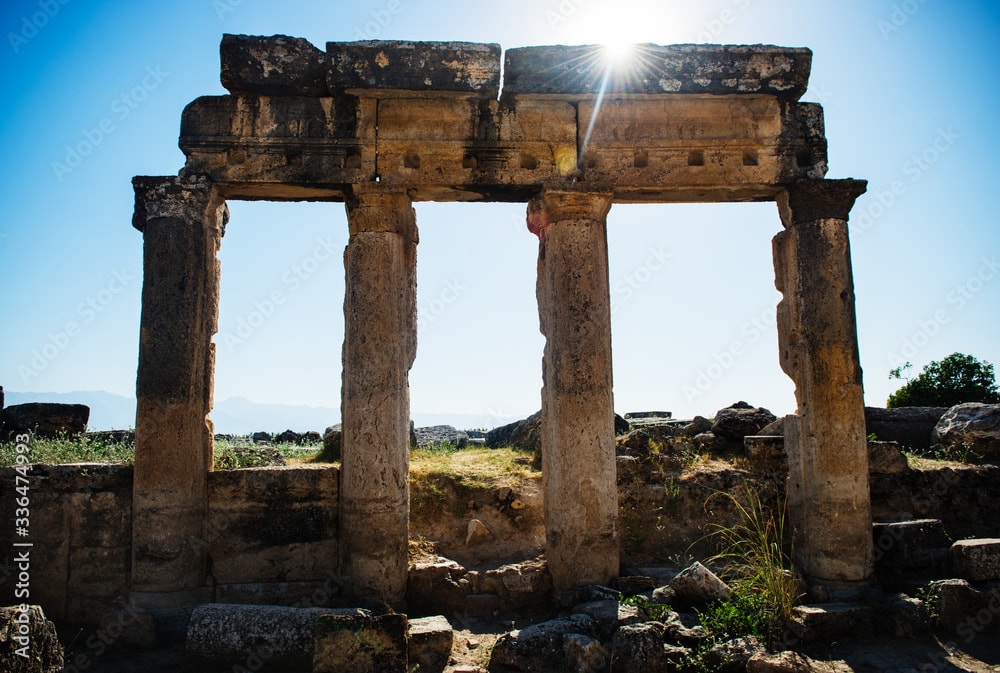– Why we do it –
We study History to gain a heart of wisdom. Most have heard it said, “Those who do not learn from history are doomed to repeat it.” History offers endless examples of what to do and not do. In the words of the Roman historian Livy, “The study of history is the best medicine for a sick mind; for in history you have a record of the infinite variety of human experience plainly set out for all to see: and in that record you can find for yourself and your country both examples and warnings: fine things to take as models, base things, rotten through and through, to avoid.”
The more one studies the events and people of History, the more one can see the patterns that emerge. For example, one can see that no nation that has risen has ever avoided a fall and how Communism/Socialism has brought a host of woes on the nations that have adopted it.
The proper way to study History is to recognize that it is all part of His Story (i.e. Jesus). God has orchestrated events to bring about salvation for His people. The history of the Bible shows us that God is in complete control and that nothing will thwart his plan.
Lastly, it is helpful to see how ancient secular history and archaeology firmly support the historical accounts in the Bible. From Jericho to Cyrus to Pilate to Jesus, outside sources and artifacts have consistently proved the reliability of the Bible. The study of History therefore serves as a helpful apologetic to the Christian faith.
– How we teach it –
The first two years of instruction focus on giving students a foundational understanding of our own country. The most effective and engaging way for young children to learn History is for them to listen to biographies of courageous Christians and American heroes. The teacher reads and the students narrate back what they heard in as much detail as possible. This act of articulation solidifies the story into their minds and demonstrates that they are tracking.
From second to sixth grade, students begin a chronological march through history from Creation until the Modern Era. Each grade studies the 36 most important events and people from each time period:
- Second grade covers ancient Egypt and the Old Testament,
- Third covers Greece, Rome and the New Testament,
- Fourth the Middle Ages and the Renaissance,
- Fifth the Age of Exploration and early American History
- Sixth covers American History from the early 19th century to the present
Each of these grades learn a song that includes each important event/person (180 in total). By the end of sixth grade, students are able to sing the history of the world and have a strong foundation for a deeper dive as they move forward. In addition to learning the most salient facts from each time period, students read stories of influential historical figures so that they have clear examples of people they can imitate.
Toward the end of the year, OSNAS hosts its annual Historical Speech and Song Day. On this day, students recite a significant speech from the era they are studying and sing their history song in front of school. For example, kindergarten recites from memory a section from Patrick Henry’s Give Me Liberty or Give Me Death speech while the sixth grade recites a section from MLK’s I Have a Dream.
In the upper grades, the chronological cycle of history repeats itself twice more (ancient, medieval and modern). The main difference here is that the students read primary source documents rather than secondary source documents. Students read historical works like Herodotus, Plutarch, Saint Benedict, Bede, Thomas Paine and Benjamin Franklin. By reading original works, students are able to form their own opinions instead of relying on the opinions of others. They are also able to develop a deeper connection with the author that they would not have done otherwise.
When it comes to assessments, rather than cramming information and regurgitating it on a test, we hone a student’s ability to make solid arguments, assess an idea, and speak to the wisdom/virtue of a historical person. Copious reading, class discussions and lucid essays help students grow in their reasoning and communication skills much more effectively than assignments characterized by multiple choice, true and false and fill in the blank.
